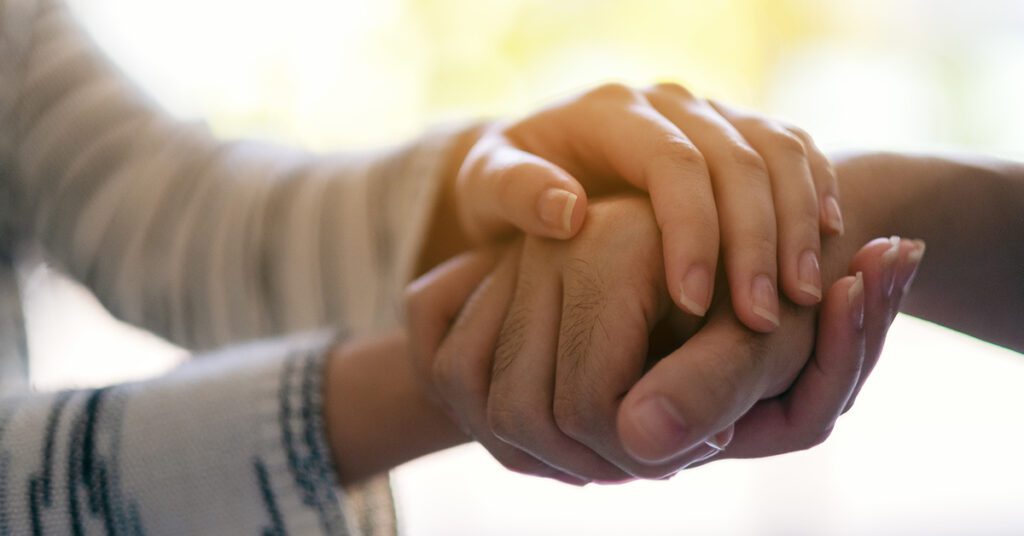Previous articles discussed three parts of Emotional Intelligence, those that cover how we manage ourselves: Self-Awareness, Self-Regulation and Self-Motivation. Today we will cover the last two parts of Emotional Intelligence that deal with how we handle our relationships with others: Empathy and Social Skills.
Empathy
Empathy is described as sharing in the feelings of others, whether joy or sadness. Some people find it hard to experience empathy. For empathy to work, a person must first be able to recognize, classify, and understand their own feelings. Once you can understand what you are feeling you will be able to feel and express empathy for others.

Empathy is often confused with sympathy, but they are not the same thing. “Sympathy or compassion is feeling for the other person, empathy is experiencing what they experience, as if you were that person, albeit through the imagination.” skillsyouneed.com
According to psychologist Daniel Goleman, your empathetic skills develop through three stages.
Cognitive Empathy
Cognitive empathy is the ability to understand what another person might be thinking or feeling. It need not involve any emotional engagement by the observer. It’s a mostly rational, intellectual, and emotionally neutral ability.
Emotional Empathy
Emotional empathy is the ability to share the feelings of another person, and so to understand that person on a deeper level. It’s sometimes called “affective empathy” because it affects or changes you. It’s not just a matter of knowing how someone feels, but of having rapport with them.
Compassionate Empathy
Compassionate empathy is the most active form of empathy. It involves not only having concern for another person, and sharing their emotional pain, but also taking practical steps to reduce it. It is valuable to acknowledge a person’s hurt, put aside some time for them, and offering practical support or guidance.
6 Strategies to Develop Empathy
- Cultivate curiosity. Get to know the people you meet. Expand your circle and meet new people from different backgrounds.
- Step out of your comfort zone. Do something new. How does it feel to need to ask for help? Humility builds empathy.
- Examine your biases. We all have biases, and they impact our capacity for empathy. We might judge others based on differences instead of looking for similarities.
- Walk in the shoes of others. Understand what it is like for people in other situations. How do they live, work.
- Have respectful conversations. Listen and don’t interrupt. Be open to new and different ideas. Also apologize if you hurt someone’s feelings by what you have said.
- Read. Fiction, nonfiction, newspapers, journals, and online content can all capture people’s lives from different backgrounds. Reading also increases our emotional intelligence and our capacity to empathize.
Empathy has always been a critical skill. For one thing, it allows you to build social connections with others. Also, by understanding what other people are thinking and feeling, you have the ability to respond appropriately in social situations. It can also improve work situations, marriages and relationships. It can help you deal with stress. Empathy is a crucial skill in developing strong social connections. Research has shown that social connections are important for both physical and psychological health.
Social Skills
In emotional intelligence the term Social Skills refers to the skills needed to handle and influence other people’s emotions effectively.
These social skills cover a wide range of competencies. Social skills, in the Emotional Intelligence sense, include:
- Persuasion and Influencing. This is the art of exciting others and moving them to your course of action.
- Communication Skills. Listening to others, and conveying your own thoughts and, feelings. Listen-Reflect-Clarify
- Conflict Management Skills. Ability to manage and resolve conflict with tact and diplomacy. Bring disagreements into the open and search for a win-win solution.
- Leadership Skills. Lead by example. Articulate your goals, lead and guide others holding all accountable for success and lead from the front to model any necessary changes
- Bonding Skills. Able to build and maintain relationships with others, network, and build rapport with old and new acquaintances. Honor commitments
- Collaboration, Cooperation and Team-Working Skills. Builds good and productive working and social relationships. Actively collaborates, shares plans and ideas, and works together to build a better whole.
Find more information on any of these social skills at: www.skillsyouneed.com

“Showing up and having social skills provides a number of benefits. Because we are social beings, we must function in society. This interaction requires skills. Learning these face-to-face skills can assist when in a social group, can reduce or eliminate feelings of isolation, and promote overall improved social, mental and emotional well-being. People who are accepted members of a group tend to be happier and more satisfied in general.” Upjourney.com
Empathy and Social Skills (Random Acts…)
Studies are showing an alarming trend that we are as much as 75% less empathetic then 10 years ago, and that includes our children. Couple that with the fact that children today spend an average of 7.5 hours per day in front of a screen and are not developing the social skills they need. “Researchers from Penn State and Duke University found that children who were better at (social skills) sharing, listening, cooperating, and following the rules at age five were more likely to go to college. They also were more likely to be employed full-time by age 25.” verywellfamily.com
Searching for and carrying out random acts of kindness and at the same time modeling that for your kids can help teach empathy and can promote social skills. Kindness is a really good thing for others—but also for your own well-being, according to researchers. It’s also more prevalent than you might think, and a cause for optimism—even in pessimistic times.
When you feel good about what you are doing to help others, you will also feel better about yourself. Being alert to your surroundings to find a way to volunteer or offer a kindness fosters empathy. And one good act could lead to dozens and dozens of good acts promoting a community environment reducing feelings of isolation. Helping children to be more active in ways that promote their community can build their social skills, especially if the volunteering is a social event with diverse population.
As you go through your day, see what simple acts you can perform to benefit someone else. Look for opportunities to involve your children and as you help them develop empathy and social skills you too will benefit.
* Please leave a comment below. You may comment anonymously or you may use your first name. We may post or quote your comment on the website. We will never post or share your last name, email address or any other personal identifying information.
